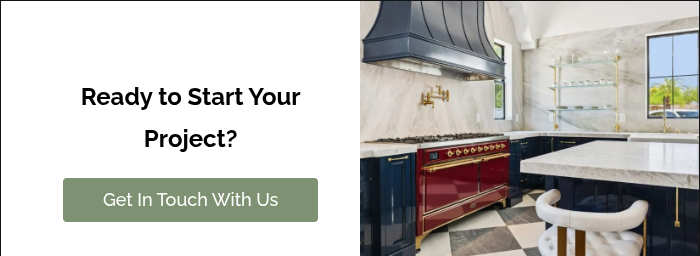6 Min Read
How Much Does It Cost to Build a Custom Home?
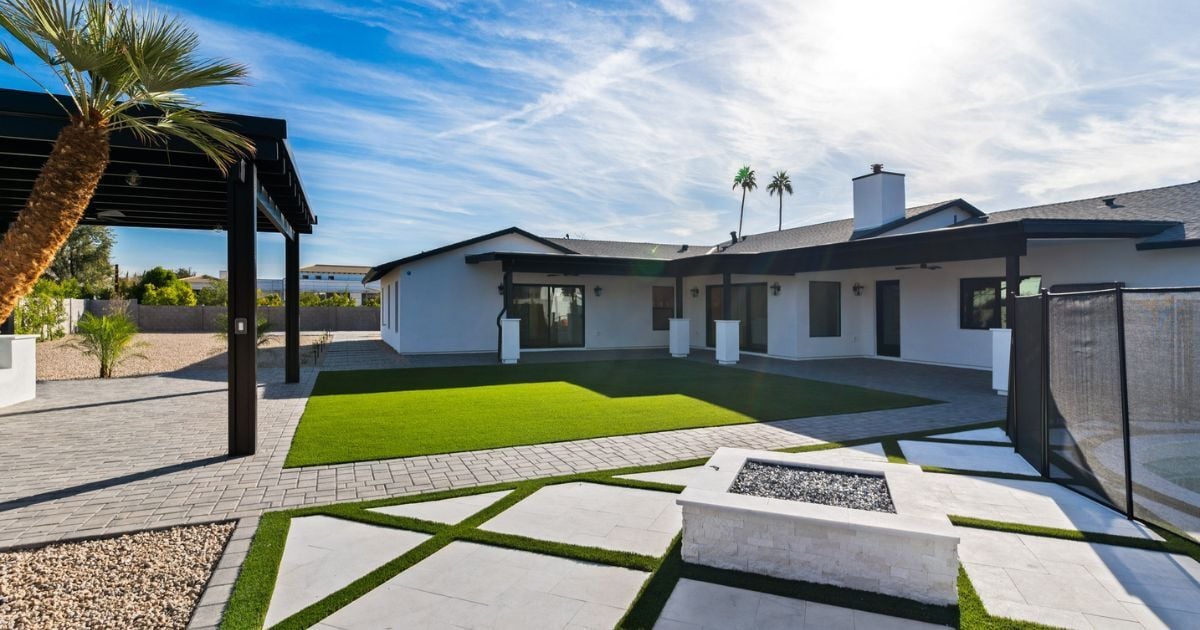
Wondering what it really costs to build a custom home in Scottsdale or Paradise Valley?
This guide breaks down the price per square foot, line-item budgets, material and labor ranges, add-on costs, and financing basics so your custom home plan starts off on the right foot!
On this page:
- How Much Does It Cost Per Square Foot to Build a Custom Home in Scottsdale?
- What's Included in the Cost of a Custom Home?
- How Much Do Materials Cost to Build a Custom Home?
- How Much Does Labor Cost When Building a House?
- Additional Custom Home Expenses to Plan For
- How to Finance a Custom Home
- Frequently Asked Questions About Building a Custom Home
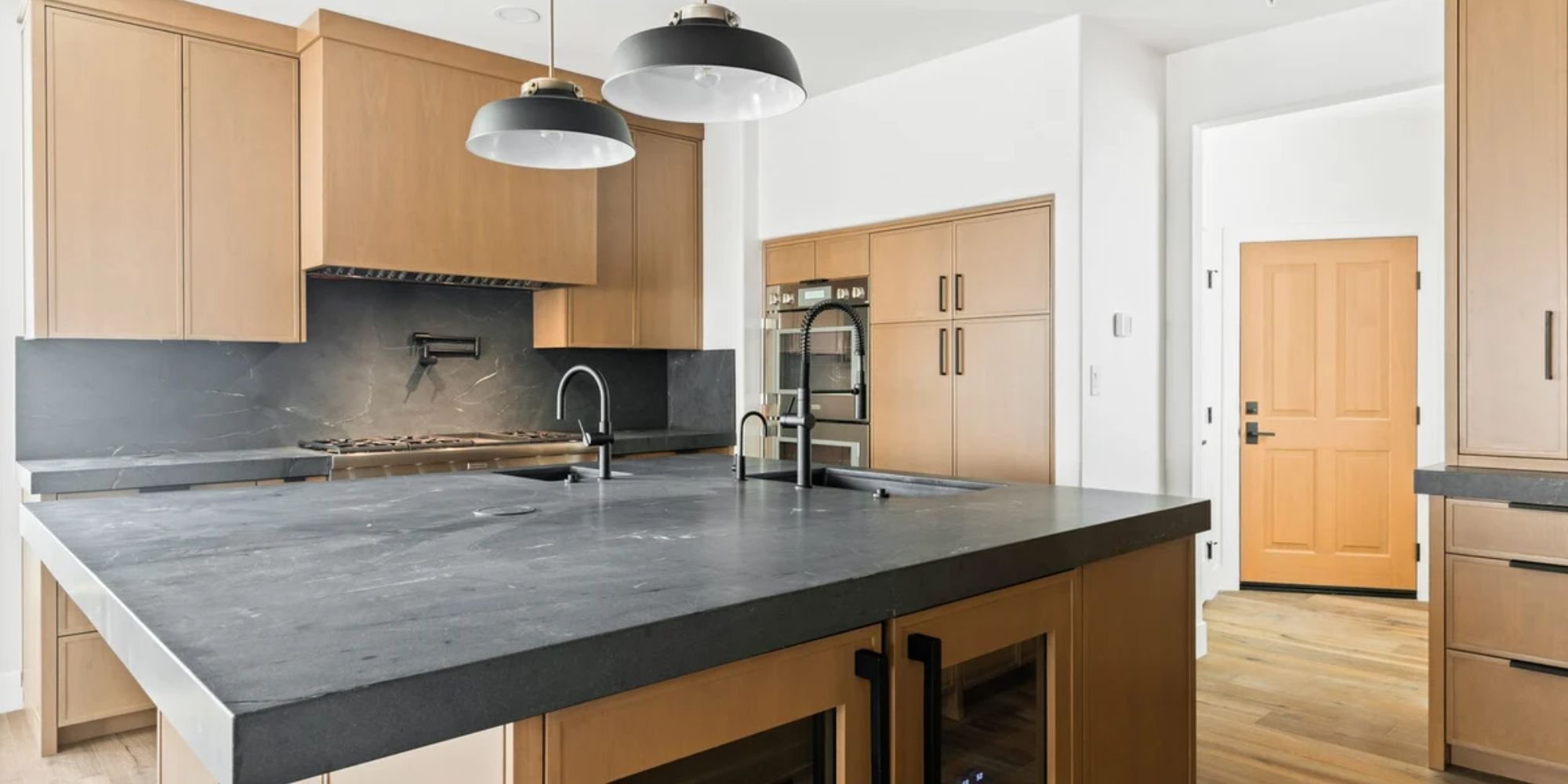
How Much Does It Cost Per Square Foot to Build a Custom Home in Scottsdale?
Think of price-per-square-foot as a rough sketch, not the final blueprint.
In Scottsdale, most custom homes land around $350–$500+ per sq ft, and that number moves with your finish level and how complex the design is.
The ranges below assume a turnkey build (design, permits, labor, core materials) and can shift based on architecture, selections, site conditions, and HOA/DRB requirements.
Starter — $350–$400/SF
A solid, value-focused build with straightforward finishes and dependable systems. Ideal when you want more square footage without premium customization.
Typical inclusions:
-
Pre-fabricated countertops
-
Pre-built cabinetry
-
Luxury vinyl flooring or carpet in a standard pattern
-
Standard plumbing and electrical fixtures
-
Standard vinyl windows
Mid Range — $400–$500/SF
Elevated performance and finishes with room for design personality and indoor–outdoor living.
Typical inclusions:
-
Energy-efficient mechanical systems
-
Semi-custom cabinetry throughout
-
High-end LVP or tile in a standard pattern
-
Outdoor living spaces (e.g., covered patio)
-
Premium vinyl or composite windows
-
Upgraded appliances
-
Upgraded plumbing and lighting fixtures
Luxury — $500/SF+
Bespoke craftsmanship and materials, advanced systems, and signature details throughout—tailored to your lifestyle and aesthetic.
Typical inclusions:
-
Custom kitchen cabinetry, closet systems, and vanities
-
Luxury fiberglass or aluminum-clad window packages
-
Hardwood flooring and premium-pattern tile
-
Luxury plumbing and lighting fixtures; top-of-the-line appliances
-
Custom stone countertops and backsplash; tiled shower walls with custom patterns
-
Skylights and sun tunnels; smart-home integration
-
Heated bathroom floors
-
Outdoor kitchen/host area
-
Premium energy-efficient systems
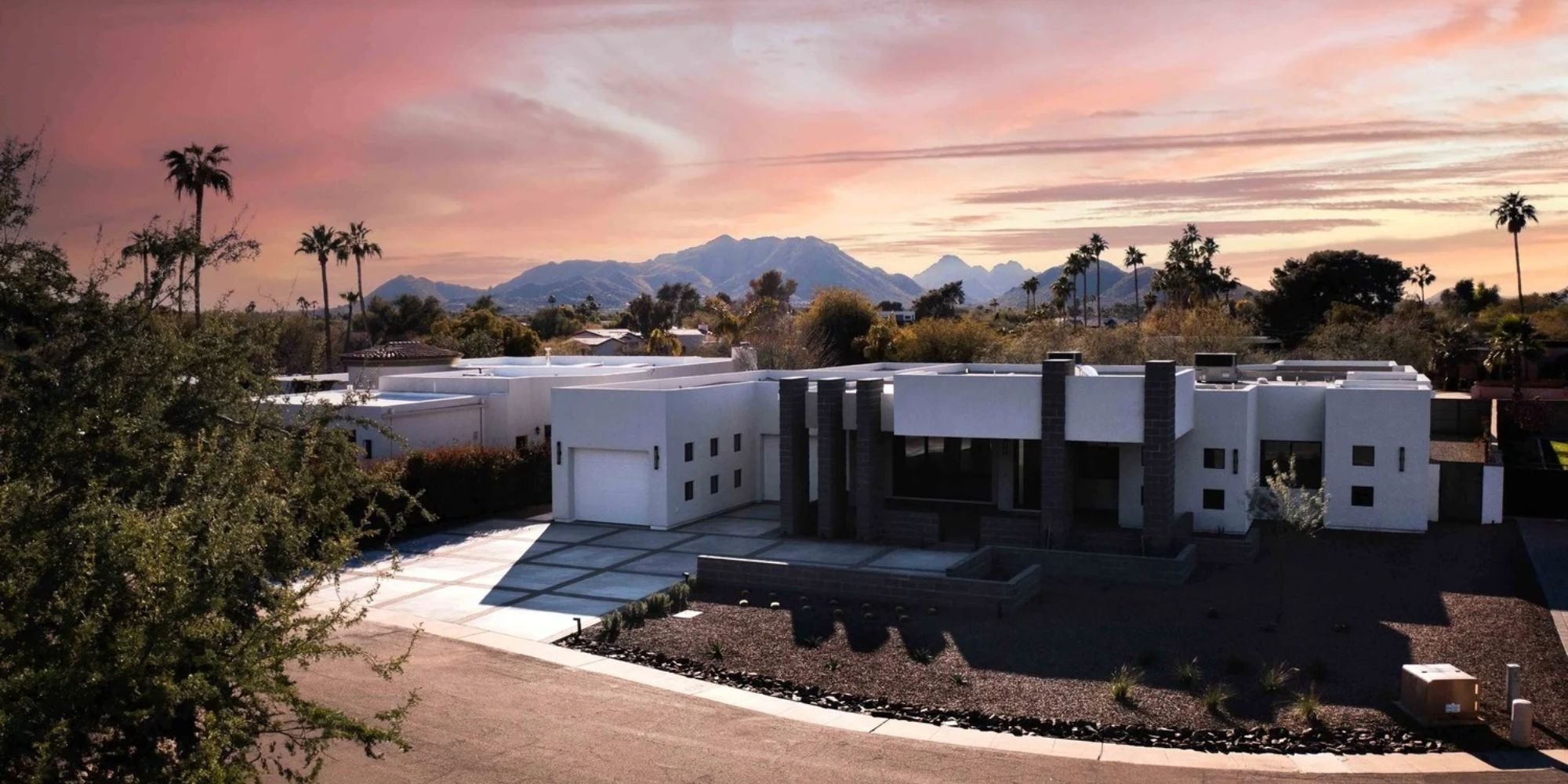
What's Included in the Cost of a Custom Home?
Here’s a simple view of where a custom home budget typically goes. Use these ranges to benchmark bids and decide where to prioritize design and performance.
-
Architectural Design: $10,000 – $30,000
-
Site Preparation: $5,000 – $15,000
-
Foundation: $10,000 – $25,000
-
Framing: $20,000 – $40,000
-
Roof Installation: $15,000 – $30,000
-
Exterior Finishes: $25,000 – $50,000
-
Major Systems Installation (HVAC, electrical, plumbing): $50,000 – $100,000
-
Interior Finishes (flooring, paint, trim, millwork): $40,000 – $80,000
-
Landscaping: $10,000 – $20,000
-
Miscellaneous (permits, testing, fees, cleanup, small add-ons): $5,000 – $20,000
How Much Do Materials Cost to Build a Custom Home?
Materials are a major driver of total cost, and they also shape performance, comfort, and resale. Use the ranges below to compare options quickly, then decide with the designer where to invest for the long term.
Framing Materials
-
Wood: $1–$5 per sq ft
-
Steel: $10–$20 per sq ft
Why it matters: Steel enables wide spans and minimalist lines; wood is flexible and cost-efficient. Choose based on structure, aesthetics, and durability goals.
Roof Installation
-
Asphalt shingles: $100–$200 per square (100 sq ft)
-
Metal roofing: $500–$1,800 per square
Why it matters: Metal lasts longer and handles heat well, but increases upfront budget; shingles are budget-friendly with a shorter lifespan.
Exterior Finishes
-
Stucco: $6–$9 per sq ft
-
Siding: $2–$7 per sq ft
-
Brick: $6–$15 per sq ft
Why it matters: Each option balances cost, maintenance, and aesthetics differently. Brick adds curb appeal and durability; stucco is common in the desert; siding offers lower initial cost.
Insulation
-
Spray foam: $0.44–$1.50 per board foot
Why it matters: Higher upfront cost, better air sealing, and efficiency often pays back through energy savings.
Windows & Doors
-
Vinyl windows (basic): $100–$300 each
-
Composite windows (higher performance): $300–$1,200 each
-
Exterior doors: $200–$1,000+
Why it matters: In our climate, prioritize energy-efficient glazing and frames; they improve comfort and lower utility bills.
Flooring Materials
-
Hardwood: $6–$12 per sq ft
-
Ceramic tile: $0.50–$35 per sq ft (brand and design drive variance)
Why it matters: Hard surfaces excel in desert living; tile offers broad style and performance ranges.
Cabinets & Countertops
-
Custom cabinets: $500–$1,200 per linear ft
-
High-end countertops (granite/marble, etc.): $40–$100 per sq ft
Why it matters: Kitchens and primary suites are daily-use zones. Quality here boosts function and resale.
Plumbing Fixtures
-
Kitchen faucet (high quality): $150–$600
-
Premium bathroom suite: $1,500–$5,000
Why it matters: Fixtures influence reliability and the feel of the space; confirm finish availability and lead times early.
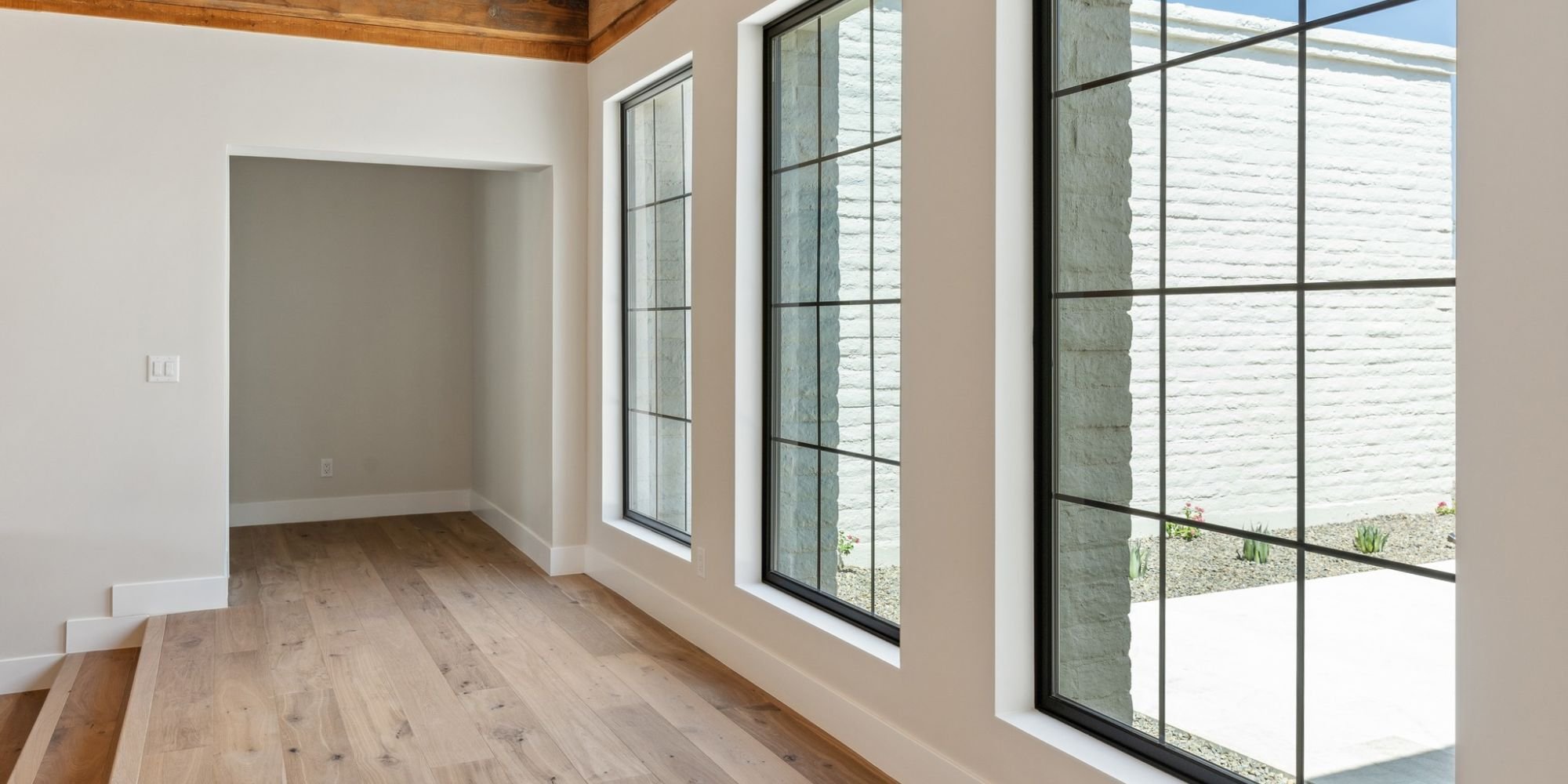
How Much Does Labor Cost When Building a House?
Labor is the other big lever in your budget. Rates vary by license level, scope, complexity, and timing (after-hours or rush work often costs more), but these planning ranges will help you benchmark bids in Scottsdale, Paradise Valley, and the East Valley.
-
General Contractors: $30–$90/hr
-
Plumbers: $45–$200/hr
-
Electricians: $50–$150/hr
-
Roofers: $35–$75/hr
-
Painters: $20–$60/hr
-
Flooring Installers: $15–$40/hr
-
Carpenters: $20–$70/hr
-
HVAC Technicians: $25–$80/hr
-
Structural Engineers: $65–$150/hr
-
Landscapers: $15–$45/hr
-
Brick Masons: $20–$70/hr
Most scopes are priced per project rather than hourly. Use these ranges for context, and ask each trade to clarify minimums, travel charges, and what’s included (materials, disposal, warranty).
Additional Custom Home Expenses to Plan For
There’s more to a custom home than the structure itself. A few outside-the-walls items can move the budget, and seeing them up front keeps surprises off your plate.
Land & Lot Costs
Location drives everything in Scottsdale—lot size, views, topography, and community rules all play a part.
-
Entry-Luxury Areas (North Scottsdale, McCormick Ranch): $400K–$800K
-
Luxury Golf Communities (DC Ranch, Troon North): $900K–$1.5M+
-
Ultra-Luxury Estates (Silverleaf, Paradise Valley): $2M–$5M+
Permits, Fees & City Requirements
Handled during Pre-Construction so your schedule stays clean.
-
Permit & impact fees: $1,500–$7,500
-
Soil reports, surveying, drainage plans: $3,000–$10,000
-
HOA / DRB submissions: Varies by community
Interior Design & Furnishings
Most clients invest in interiors that match the architecture and lifestyle.
-
Base interior design packages: $25K–$50K
-
Luxury full-service design: $75K–$250K+
(furnishings, window treatments, lighting, artwork, and more)
How to Finance a Custom Home
Building is cash-intensive up front, which is why most clients use short-term construction financing that funds the project in draws and then converts to a standard mortgage at move-in.
Here are the common paths. Choose the one that fits your timeline, equity, and comfort with monthly payments.
Construction-to-Permanent (One-Time Close)
-
What it is:
One loan that covers land + construction, then automatically converts to a 15/30-year mortgage when the home is complete. -
Why people like it:
One set of closing costs, interest-only during construction, and a predictable path to long-term financing. -
Good fit for:
Ground-up custom homes where you want a single, streamlined package with a luxury-savvy lender.
Home Equity Loan or HELOC
-
What it is:
Borrow against the equity in your current home; often interest-only with flexibility on draws (HELOC). -
Why people like it:
Competitive rates for qualified owners; great for major remodels and additions. -
Common use here:
Clients updating beloved homes in Arcadia, McCormick Ranch, or Gainey Ranch often tap existing equity to fund the work.
Cash or Liquid Assets
-
What it is:
Fund the project from reserves or investments. -
Why people like it:
Speed, simplicity, and fewer lender requirements. -
Pro tip:
Keep a 10–15% contingency liquid for upgrades and surprises without disrupting your plan.
Private Capital or Investment Partnerships
-
What it is:
Pool resources with family members or investors under a formal agreement. -
Why people like it:
Helpful for second homes, multigenerational builds, casitas, or legacy properties. -
Pro tip:
Use a clear ownership/exit agreement so everyone is aligned on contributions and decisions.
Quick tips before you choose
-
Get pre-approved early so your budget guides design, not the other way around.
-
Ask about draw schedules and who approves them; align lender draws with your builder’s milestones.
-
Plan for carry costs (rent/mortgage, storage, interest) during construction.
-
Check rate options (locks, float-downs) and what happens if your timeline shifts.
If you’d like introductions, we can connect you with lenders experienced in luxury residential construction who know our process and timelines.
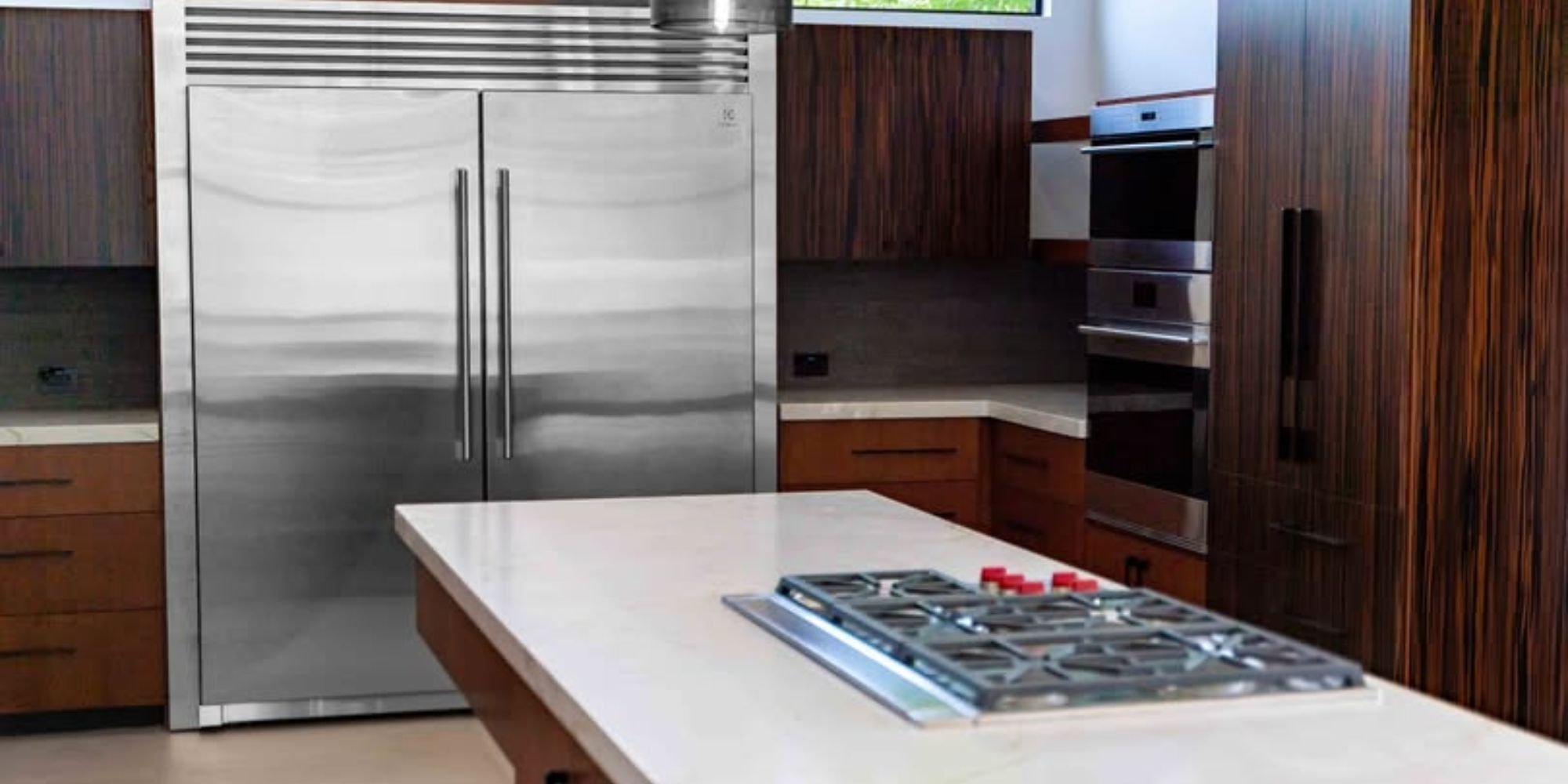
Frequently Asked Questions about Building a Custom Home in Scottsdale, AZ.
1. Is Building a Custom Home More Expensive Than Buying an Existing Home?
Yes, custom homes typically cost more upfront than purchasing a resale home, especially in high-end areas like Paradise Valley or Silverleaf. However, they provide complete control over layout, finishes, and long-term value, ensuring the home reflects your lifestyle and design vision.
2. What Drives Cost More: Size or Finishes?
Both matter, but finishes often have a bigger impact on luxury homes. A smaller home with high-end selections (steel windows, custom cabinetry, smart tech) can outprice a larger home with standard-grade materials. Trinity helps you balance both without compromising style or function.
3. What Is the Most Expensive Part of Building a House?
The framing of a house ranks among the most costly components of construction. Acting as the foundation and backbone of the structure, it requires a significant investment in terms of materials, time, and labor. These factors collectively drive up the cost, making it a crucial yet expensive aspect of home building.
4. What House Style Is Most Expensive to Build?
Beach houses and Mediterranean-style homes are often the most expensive to construct in the U.S. These homes are commonly situated on prime land close to the ocean, incorporating large windows and balconies for natural light. This design approach enhances both the luxury and simplicity associated with these styles.
5. Is Framing or Foundation More Expensive?
Framing is typically the most expensive element in home building, surpassing the costs associated with laying the foundation. While preparing and laying the foundation has an average cost of $14,500, framing costs average around $35,000. The expense of framing encompasses both the purchase of lumber and the labor cost involved in installation.

Your Custom Home Awaits!
Building a custom home is exciting and also a pretty big investment. The key is clarity: a solid plan, a realistic budget, and steady communication from day one.
At Trinity Homes AZ, we keep the process simple and transparent. From Discovery to Warranty, we coordinate the right team (architects, designers, trades), align scope and budget, and share regular updates so you always know what’s next.
Reach out to us today and take the first step towards crafting your dream home with an unforgettable custom home-building experience.
Kelly Morse is the Director of Preconstruction at Trinity Homes AZ. She specializes in guiding clients through the early phases of high-end custom home projects, blending thoughtful planning with a passion for process. With a reputation for honesty, collaboration, and precision, Kelly helps shape the vision and experience behind every Trinity build.

